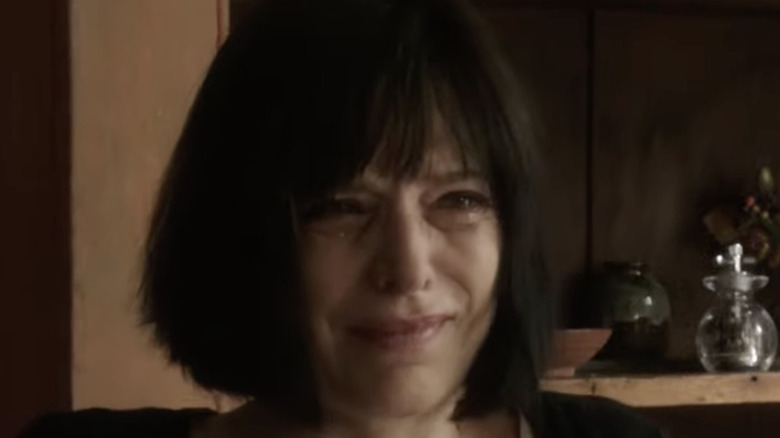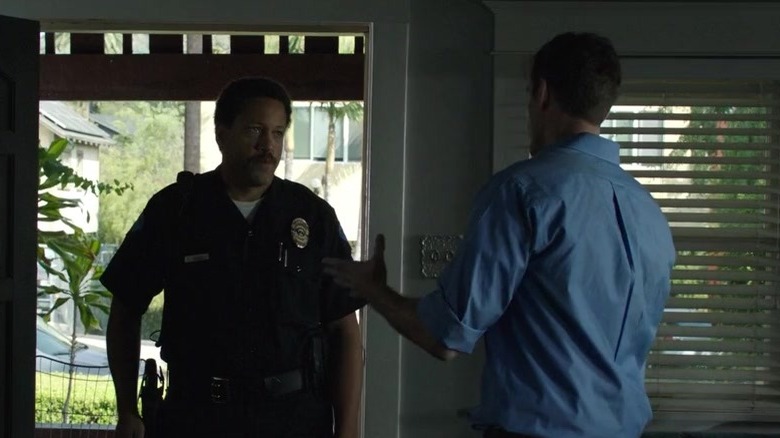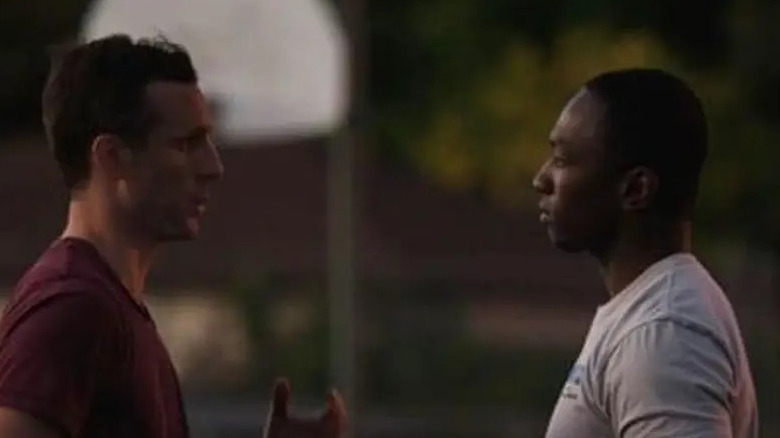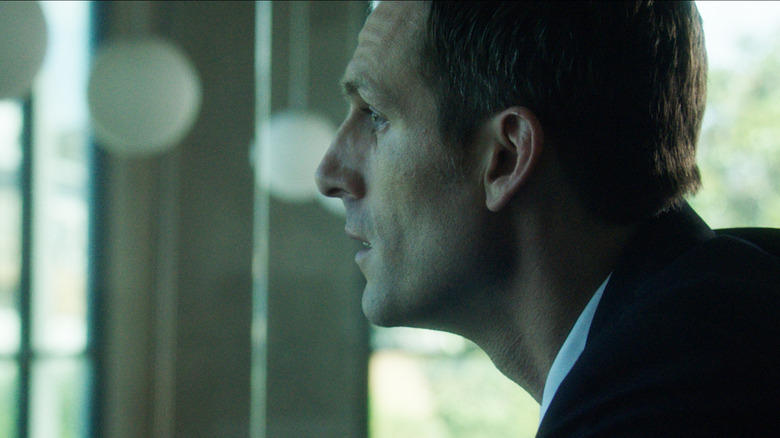The Ending Of Doubting Thomas Explained
The 2018 film "Doubting Thomas" grapples with a lawyer named Tom (Will McFadden) eventually coming to terms with his own racism.
Tom and his wife Jen (Sarah Butler) seem to have an ideal marriage until it is revealed that the child she just birthed looks Black. The couple, who appear to be white, come to the conclusion that one of them must have some Black ancestry. While Jen gets adjusted to motherhood, her husband withdraws from her, causing her to seek out support from their friend Ron, played by Jamie Hector, the only Black lawyer at Tom's firm. When his co-worker Graham (Zach Cregger) mistakes Jen and Ron's friendly lunch date as something romantic, he starts to believe that they have been sleeping together. This causes Tom to act aggressively toward both Ron and Jen. In a particularly heated exchange, he tells his wife that he does not "want a Black kid."
At this moment, it becomes apparent that Tom may be more upset that the child, Liam, is not white than the possibility that he may be Ron's son. This notion is further explored when Tom's mother-in-law, Kate (Melora Walters of "PEN15") shares some vital information.
Here is the ending of "Doubting Thomas" explained.
Jen's mother reveals her father was Black
After Tom makes the racist remark of not wanting to be a father to "a Black kid," Jen leaves to stay at her parents' house. Unbeknownst to Jen, Kate invites Tom over to reveal that Jen's biological father, Rogers, was a Black man. She ends up telling her daughter the real reason that he was not in the picture. She explains that while she was pregnant, Rogers stopped a robbery from happening by detaining a criminal. Kate then reveals that "when the cops arrived they thought he was the suspect, assaulting an innocent white man," and that they "put him in a chokehold," causing his death. She asserts that "he'd probably still be alive if he were white."
Rogers' interaction with police officers parallels a situation that occurs during the first 10 minutes of the film. When Jen is still pregnant, a stranger smashes her car window, and Tom runs after him. Jen soon realizes she is in labor and quickly leaves to go to a birthing center. Before Tom can meet her there, an officer arrives at his home to ask him questions about the robbery. Tom refuses to give the officer his identification and acts aggressively, exhibiting his privilege.
While this interaction does cause him to not be present at the birth of his child, his fate is much better than that of Rogers — due to his whiteness.
Ron believes Tom is racist
Tom does eventually attempt to apologize to Ron. However, Ron asserts that he has "revealed" he is racist and effectively ends their friendship. This is a moment for the audience to reevaluate Tom's character. While he claims to not be racist, he is guilty of quite a few microaggressions throughout the film. For instance, before Liam is born, he sees a Black man playing catch with his son. When Jen says, "that's going to be you soon," he seems to be annoyed and says, "I certainly hope not." When his wife asks for clarification, he claims that he does not enjoy baseball. However, signs point to the fact that he likely had an issue with the child being Black.
The film's final scene consists of Tom reading a letter from Jen, in which she reveals that she went through with a paternity test for Liam. She wrote that while she may have difficulty forgiving Tom, she does want him in their child's life. Tom proceeds to burn Liam's test results, presumably without looking at them. When he goes outside, he sees the same child throwing a baseball. Tom stares at him for quite some time, indicating that he is ready to be a father to Liam, even though he is of a different race.
Jen could forgive Tom
While it is unclear if Tom will ever be able to mend his relationship with Jen, the movie's producer Laura Jane Salvato suggested that those who have racist ideologies deserve forgiveness if they do the work to change their beliefs.
"When someone is open to learn, then we can stop discarding each other because that's what we do a lot of the time. We use the term racist to discard another person and instead that maybe we can use this — think about it in terms of we all have a little bit of this and to give ourselves a chance to forgive each other and to see well is this person willing to bridge the gap, is this person willing to try to learn, and maybe that's the way to get past all this entrenched, these polarized feelings that we have right now," said the producer during an October 2019 interview at a screening of the film.



